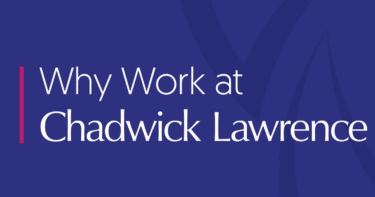
07
Mar 2023
How to Avoid the Family Court Backlog
Family courts are continuing to experience a serious backlog, with some estimates putting the outstanding cases at over 110,000. This means that court proceedings are taking over 43 weeks to reach a final hearing on average, with many cases taking much longer. We look at alternative options.
If you are going through a divorce, there may well be issues that you and your former partner cannot agree upon. Common points of contention include what will happen to your shared home, how assets will be divided, who will take responsibility for debts and what arrangements will be made for your children.
It is very important to address these issues to give you and your family certainty for the future. By way of example, if you do not have a financial order in place, your former spouse could make a claim against you many years from now.
It has always been the courts’ preference that disputes are resolved by the parties without the need for litigation wherever possible. This has become ever more important as the court backlog grows. Fortunately, there are several ways of dealing with disagreements that are usually successful, meaning you would not have to have a court hearing.
Negotiation
An experienced family lawyer will be able to identify key issues in dispute and negotiate on your behalf with your former partner’s solicitor. This will enable you to see exactly what is important to you and what you are prepared to compromise over.
In a recent judgment*, a family court judge criticised the use of the family courts to micro-manage disputes. He gave examples he had heard over the previous month where he had been asked to decide (i) at which junction of the M4 a child should be handed over for contact (ii) which parent should look after children’s passports, when there was no suggestion that either would leave the jurisdiction and (iii) how should Sunday afternoon contact be arranged.
Your family solicitor should be able to work on your behalf to make these types of arrangements, avoiding the need to involve the family courts and deal with the substantial delays for a hearing.
Mediation
Where negotiation is unsuccessful, the next step is usually mediation. It is generally a legal requirement to consider mediation before starting litigation unless domestic violence is an issue. As well as being quicker than litigation, mediation is more cost-effective and can help reduce conflict.
During mediation, a professional mediator will work with you both to help you explore the options open to you. If you choose to agree on a way forward, this can be sealed into a binding order by the court, which takes less time than a court hearing. If you are not able to agree, then you will not have an unwanted outcome imposed on you.
Collaborative law
Collaborative law is a form of alternative dispute resolution that involves sitting down together with your solicitor, who will generally be specially trained in collaborative law, your former partner and their solicitor to go through the disputed issues and try and work out a solution.
You can also involve other experts, such as a financial adviser, accountant or specialist in children’s issues. You will sign an agreement committing to try and resolve matters collaboratively. Should your case ultimately end up in court, you would have a different legal representative to avoid any conflict of interest.
Arbitration
Arbitration can be thought of as a private court paid for by you and your former partner. The arbitrator’s decision will be binding, in a similar way to a court order.
The advantages include the fact that the process is quicker and easier to arrange, you can suggest dates that are suitable for you and it is unlikely to be called off at the last minute, which can happen at court after you have paid for your barrister to be briefed and ready. You can also choose the venue or decide to have the matter dealt with in writing if you prefer.
Where you are able to agree on some issues, you can instruct the arbitrator to just address those that you cannot agree on.
If you would like to speak to one of our expert family lawyers, ring us on 0800 015 0340 or email us at family@chadlaw.co.uk.
* Re B (A Child) (Unnecessary Private Law Applications) [2020] EWFC B44
- Like this ? Share with friends





